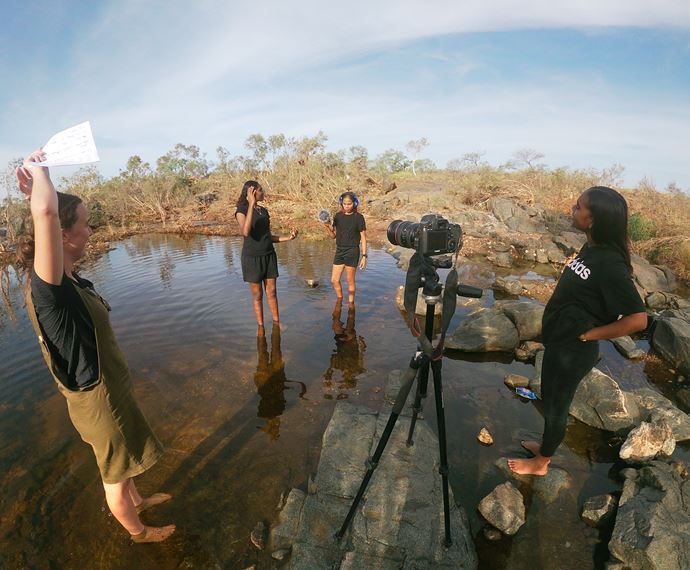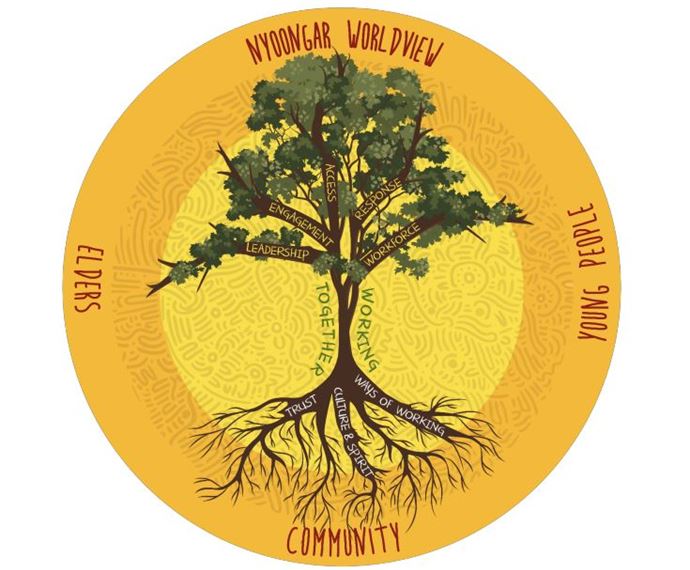Closing the education equity gap
Founded in 1999, The Song Room is an Australian educational organisation delivering multi-year, multi-artform learning programs with student and teacher outcomes.
Through this grant, The Song Room delivered its ‘Deadly Arts – Indigenous Community Engagement Project’. Spanning three years, the initiative was co-designed and led by local Indigenous artists and educators alongside The Song Room’s education team and a local community liaison officer. The program existed to provide innovative and accessible after-school workshop and performance opportunities for vulnerable students, their culturally diverse peers, parents and care givers. It's aim was to improve engagement, sense of belonging, and learning outcomes through arts learning centered on First Nations arts, histories, and culture.
Reducing the education equity gap experienced by Indigenous and non-Indigenous disadvantaged students in Perth.
The Song Room
11/22/2017
$587,654
Lotterywest
$311,894
Children (12 years and under), Aboriginal and Torres Strait Islander people, Families
- Parents and carers reported feeling more connected to their child's school and deepened relationships with teaching staff since attending the program.
- School principals reported that students showed increased engagement with and participation in learning about Aboriginal and Torres Strait Islander Culture.
- The Deadly Arts program strengthened all 12 school communities, including students, teaching and education support staff, parents, carers and family members.
- 19 Western Australian artists benefited from direct employment opportunities, including 15 Indigenous artists.
- Extensive community consultation facilitated by an experienced Aboriginal community liaison officer and working with local teaching artists built trust with the program prior to commencement.
- A carefully planned alternative delivery approach in a COVID affected environment allowed the project to adapt and innovate effectively.
- Strong planning and communication with all stakeholders, including funding partners, was critical to success.
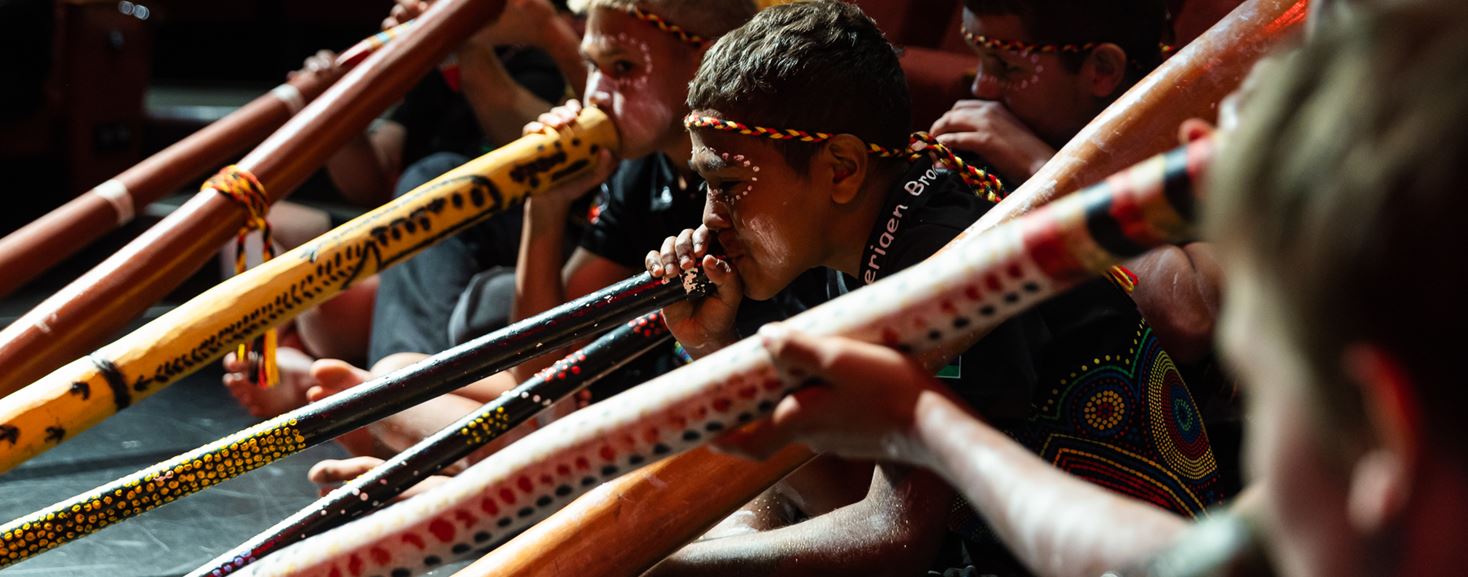
Opportunity
In Australia, students from a disadvantaged background have lower participation rates in school, and poorer outcomes as adults [1]. Despite extensive evidence that links music and arts-based programs with decreased absenteeism, better grades, and improved wellbeing, the education equity gap continues to grow [2].
Research shows regular attendance and engagement in school is important for the development of intellectual and social emotional skills [3]. The 2020 Closing the Gap report tells us that while non-Indigenous students had attendance rates of around 92% in 2019, Indigenous attendance rates were around 82% in the same year [4]. Additionally, students who feel a sense of belonging at their school, and like attending school are more likely to have greater motivation and engagement, as well as better academic outcomes [3].
Through the delivery of curriculum-aligned arts workshops across all art forms, The Song Room was able to support learning and increase engagement with parents, care givers, school leaders and the broader school community [2].
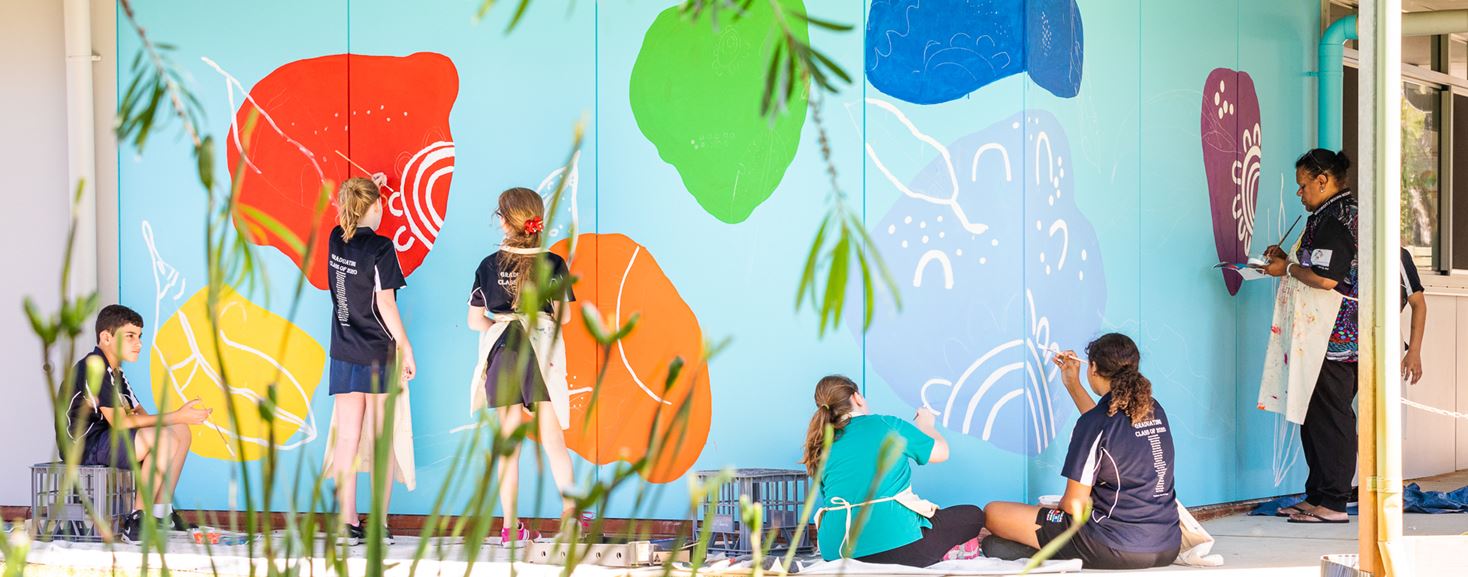
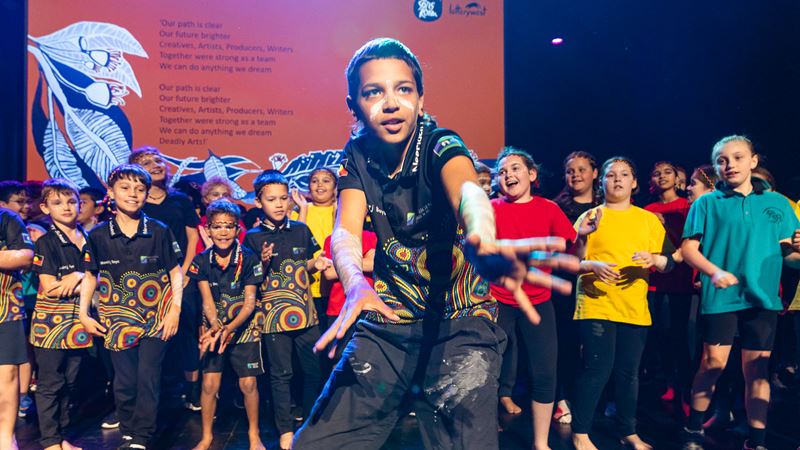
Approach
Deadly Arts is an innovative program model developed by The Song Room, evolving its previous program from a focus on early years literacy to a renewed focus on Indigenous education and community building. It aimed to address critical needs that are widely recognised to impact Indigenous children’s success and retention at school: wellbeing, engagement in learning, parental and care giver involvement and recognition of cultural heritage.
Deadly Arts set several key objectives for their project. These were to:
- Demonstrate growth in learning, personal development and community involvement for all children who participate in Deadly Arts.
- Engage all parents and care givers, whose children participate in Deadly Arts, in their child’s school community and learning.
- Build the capacity of teachers and engage school leadership, enabling them to deliver an innovative program model which improves parental, care giver and community support for Indigenous children’s education.
- Support the transmission and development of Indigenous cultural heritage and knowledge within the participating communities.
- Contribute to a strong sense of cultural identity and pride in Indigenous communities.
The project was delivered across four schools each year by Indigenous teaching artists, engaging Indigenous and non-Indigenous students, and their parents and care givers, in weekly workshops.
The Deadly Arts workshops were a platform for schools and their communities to learn about, engage, and participate in Indigenous culture and heritage through arts-based experiences including dance, music, visual arts and dramatic play.
The workshops occurred in either non-core teaching hours or after-school hours which provided a way for the parental and care giver community to be involved in the program. This enhanced cross-cultural understanding for Indigenous and non-Indigenous students and their parents and care givers, and supported social cohesion.
“The kids have fun and they want to go to school because of this project.” Parent
The Song Room team believed students would develop their knowledge and understanding of creative processes, while learning communication, collaboration and intercultural skills. As their confidence grew, the team anticipated that wellbeing would improve, and students would develop a sense of belonging at school. This, in turn, would impact students’ openness to learning, helping to improve their outcomes.
Impacts and outcomes
The Deadly Arts program was carefully monitored and assessed across three years using parental, care giver and student engagement surveys, teacher and principal surveys and student feedback.
Over six school semesters from July 2018, Deadly Arts workshops directly engaged:
781


Students
169


Parents
62
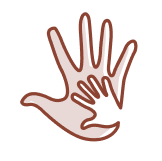

Teachers
The outcomes of these workshops have strengthened all 12 school communities, comprising of a total of 3,172 students, 485 teaching and education support staff, and a large community of parents, care givers and family members.
A total of 19 local Western Australian artists benefited from direct employment opportunities through the engagement program, including 15 Indigenous artists.
Across the three years of the program, parents and carers who responded to surveys at the end of each semester reported that they valued the program, and felt more connected to their child’s school since attending. Many parents and carers also reported that attending the program helped deepen their relationship with teaching staff at the school, since they were able to chat to them more informally during the art making.
Indigenous parents and care givers commented that they felt the school was taking an interest in their culture and that providing opportunities for parents and care givers as well as children to take part in Deadly Arts was a positive step towards intercultural understanding.
“As an Elder myself I think it is great to have the little ones learn about our culture. I felt proud to see that even the principal has been learning the didgeridoo, it was great to see him join with the boys at the school concert”
Parent
School principals surveyed at the end of the programs reported that students showed increased engagement with, and participation in, learning about Aboriginal and Torres Strait Islander Culture. Additionally, they saw Deadly Arts as an opportunity for parents, care givers and community to engage positively with the school and believed there was an increased sense of shared identity, belonging and school spirit between participants.
‘The Deadly Arts program has left a great legacy including physical artwork like our mural depicting Noongar seasons enabling ongoing student learning; we now have a school Acknowledgement song which was constructed with the artists and the students, professionally recorded and the whole school community is so proud to sing this at all of our school events - this is such a lovely gift to leave with our students and community.’ Assistant Principal
This grant has been successful and has supported The Song Room to evolve its programs in Perth schools to focus on Indigenous education and community building.
In March 2022, The Song Room leveraged learnings and relationships from the Deadly Arts program to launch a new online Deadly Arts Collection on ARTS:LIVE. This collection brings cultural learning to classrooms across Australian with curriculum aligned resources and activities.
What worked
The Song Room were able to test an innovative program model and prove that it is impactful for Indigenous and non-Indigenous students, teachers, parents, care givers and community members alike. The outcomes of the program were achieved and the grant supported The Song Room address four key areas that affect Indigenous children’s success and retention at school – wellbeing, engagement in learning, parental/care giver involvement and recognition of cultural heritage.
Key learnings across the three years of delivery were:
- The importance of extensive community consultation facilitated by an experienced Aboriginal community liaison officer who was able to guide strong relationships on the ground. Additionally, working with teaching artists who lived locally to, or had existing connections with schools, encouraged attendance and participation from students and teachers. It created a sense of trust with the program, prior to commencement.
- The importance of a carefully planned alternative delivery approach in a COVID impacted environment. All communities were affected by the pandemic, and it was essential to be aware of the impacts (physical, social-emotional, logistical) to adapt and innovate effectively.
- Strong planning and communication with all stakeholders, including funding partners, was critical to success.
Through the delivery of this grant, The Song Room are now poised to deliver the Deadly Arts program in additional schools not only in Perth, but across Australia.
Key challenges
Some of the challenges The Song Room faced were pandemic-related impacts to program delivery. This included repeated and extended school closures, restrictions to face-to-face delivery (in-school and after-hours programs), and restrictions to on-site visitors (including staff, parents, care givers and community members). This affected planned engagement across multiple aspects of workshops, performances, and mural launches on-site.
Reflecting on the delivery of this program, The Song Room recommends taking time for deepened consultation (with community, schools, and grant-makers), especially when delivering projects in changing environments. By following this approach, The Song Room was able to achieve intended outcomes, and complete the program with a robust framework that went on to support their program delivery in Perth and nationally. This remains extremely important in The Song Room’s ongoing response to the pandemic's impacts to education supports in schools, growing parent engagement, Indigenous and non-Indigenous student learning outcomes.
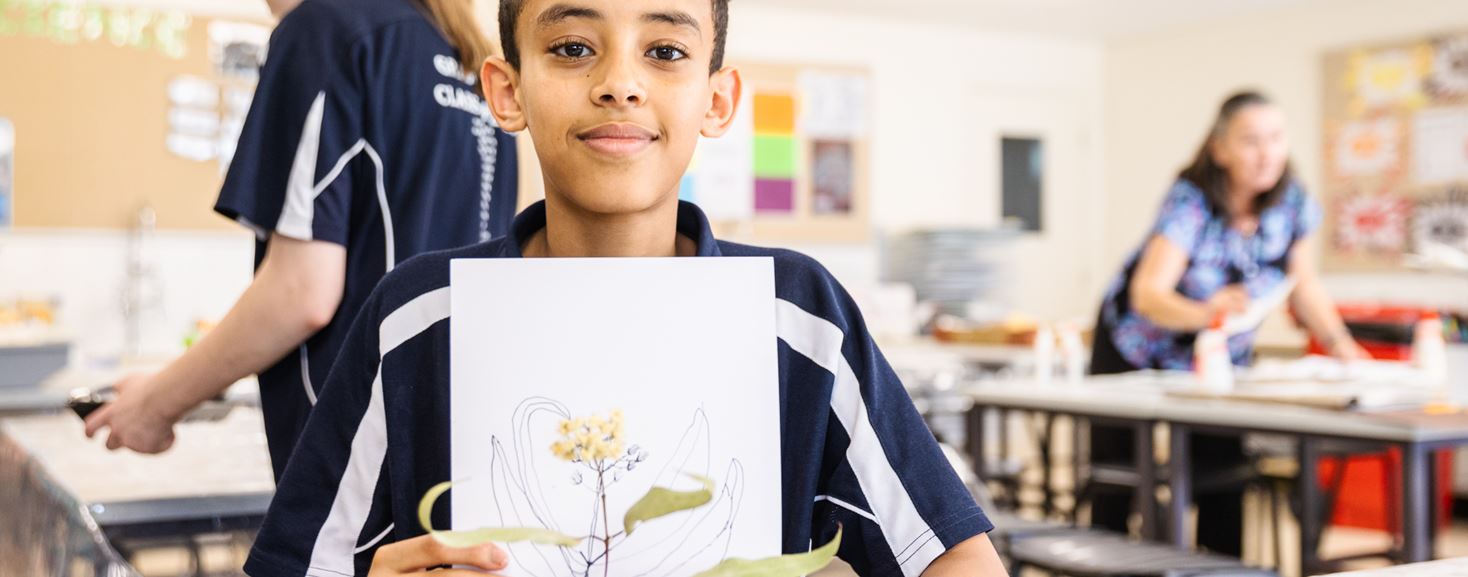
All images by Stephen Heath, courtesy The Song Room.
REFERENCES
- Australian Government. Students from low socio economic areas. 2022 [cited 2023 25 January]; Available from: https://www.education.gov.au/australian-curriculum/national-stem-education-resources-toolkit/i-want-know-about-stem-education/which-school-students-need-stem-education/students-low-socio-economic-areas
- The Song Room. Our Story. 2021 [cited 2023 25 January]; Available from: https://www.songroom.org.au/about/our-story/
- Commissioner for Children and Young People. Age group 6 to 11 years. 2022 [cited 2023 27 January]; Available from: https://www.ccyp.wa.gov.au/our-work/indicators-of-wellbeing/age-group-6-to-11-years/school-attendance/ accessed 27 January 2023
- Australian Government. Closing the Gap: Report 2020. 2020 [cited 2023 27 January]; Available from: https://ctgreport.niaa.gov.au/school-attendance
Learn about wellbeing
Understand how your community is going to help you to better target and plan your project.
Ready to plan your project?
Understand your vision, plan your impact and report on the outcomes of your project with three easy interactive tools in the Community Impact Planner.
Acknowledgement of Country
The Western Australian Community Impact Hub acknowledges and pays respect to the Traditional Owners of the land on which we are based, the Whadjuk people of the Noongar Nation and extends that respect to all the Traditional Owners and Elders of this country. We recognise the significant importance of their cultural heritage, values and beliefs and how these contribute to the positive health and wellbeing of the whole community.
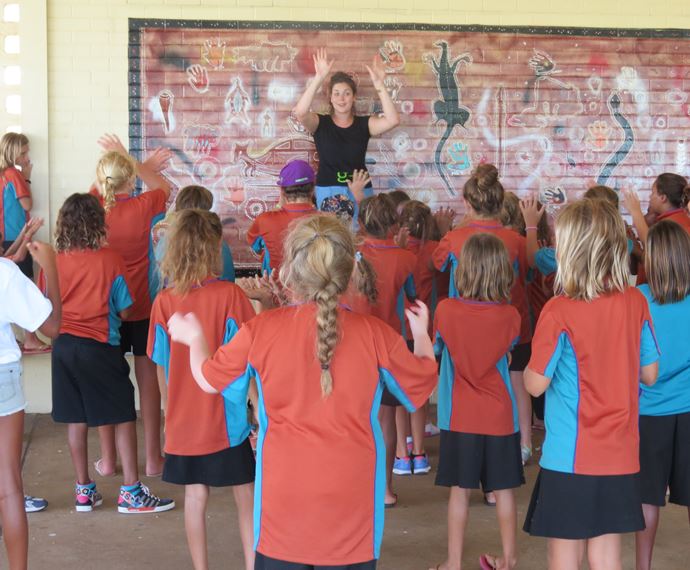
![Picture1[1]](/media/mavdfuwn/picture1-1.jpg?anchor=center&mode=crop&width=690&height=570&rnd=133051352252900000&quality=80)
![A7R02243[1]](/media/wwvcasym/a7r02243-1-resized.jpg?anchor=center&mode=crop&width=690&height=570&rnd=133045363314000000&quality=80)
